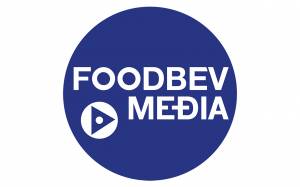The term zero waste refers to a set of principles focused on preventing waste and encouraging recycling and re-using resources. The goal of zero waste would ultimately be to move to a circular economy where waste and ‘rubbish’ no longer exist.
Total food waste in the UK fell by 480,000 tonnes between 2015 and 2018, a 7% reduction per person, according to data in January 2020 from the government’s waste advisory body. However, it shows that UK households still waste 4.5 million tonnes of food that could have been eaten, worth £14 billion every year.
In recent years, zero waste has been a key area of focus for improving sustainability across the global food, beverage and packaging industries. FoodBev has provided a breakdown list of some of the top stories regarding zero waste initiatives in 2020.
Zero Waste Scotland commits £1m to waste reduction projects
In February 2020, non-profit organisation Zero Waste Scotland announced that over a dozen Scottish organisations would take part in a £1 million pilot project to ditch disposables. The project aimed to tackle various single-use items, such as coffee cups, water bottles and food packaging.
As part of the Ditching Disposables project, it was announced several coffee shops across Scottish towns and cities would introduce a deposit return scheme for reusable cups and separate charges for disposable cups.
Zero Waste Scotland CEO Iain Gulland said: “Curbing our consumption habit is vital if we want to have a real impact on the climate emergency, so it’s fantastic to have so many organisations right across Scotland on board to look at what we can change to pioneer an alternative approach.”
Read more about Zero Waste Scotland’s waste reduction projects
Crown Holdings commit to zero waste as part of sustainability push
The Summer of 2020 saw Crown Holdings accelerate its sustainability strategy by making a raft of new pledges under its newly-launched Twentyby30 programme.
As part of their sustainability push, Crown set itself 20 environmental, social and governance goals by 2030. These goals fall under categories such as climate action, resource efficiency and packaging circularity.
Key pledges Crown made as part of the Twentyby30 programme included commitments to send zero waste from its operations to landfill by 2030; to reduce both Scope 1 and Scope 2 greenhouse gas emissions by 50%; to reduce absolute greenhouse gas emissions across its supply chain by 16%; to reduce water usage across its operations by 20%; and more.
With large companies, such as Crown Holdings, introducing goals regarding zero waste, as part of broader sustainability efforts, the industry will see many other big and small brands alike committing to similar targets.
Read more about Crown’s Twentyby30 program
Australian government creates new body to cut food waste
This year also saw the Australian government commit AUD 4 million ($2.8 million) in seed funding to create a new body that would be responsible for driving the reduction of food waste in Australia.
This came as the Australian government announced a commitment to halving Australia’s food waste by 2030. According to their government, Australia wastes more than 7.3 million tonnes of food every year, whilst last year Rabobank said that Australia as a nation is “losing the battle against food waste”.
A key responsibility of the new body was announced to be to implement a voluntary commitment programme for the industry which will support households in better managing the food that they buy and grow.
Read more about Australia’s new body for reducing food waste
Dash Water releases sparkling water made with wonky peaches
In April 2020, Dash Water expanded its portfolio of fruit and vegetable-infused sparkling waters with the launch of a new peach flavour.
Alike the other flavours in its portfolio, Dash Peach uses wonky British peaches which have been rejected by supermarkets to naturally infuse the sparkling water, as an effort to reduce food waste.
Jack Scott, co-founder of Dash Water, said: “Across Europe, 9% of all peaches produced are lost due to overproduction or spoilage at farm level. At Dash Water we are delighted to purchase these surplus peaches at fair market price and to put these peaches to good, reducing waste and in turn producing the refreshing new Dash Peach flavour.”
Read more about Dash Water’s ‘wonky’ peach-infused sparkling water
Mondelēz move to recycled plastic packaging for its Philadelphia tubs
This past year has seen various big brands committing to using 100% recycled plastic for their packaging and Mondelēz is just one example of this. In June 2020, it was announced that Mondelēz International would be collaborating with longtime supplier Berry Global Inc to create recycled plastic packaging for its Philadelphia cream cheese range.
This announcement follows their transition to make Dairylea Lunchables and Dairylea Snackers packaging with 75% recycled PET plastic in the UK.
Vince Gruber, executive vice president and president, Europe for Mondelēz International said: “It is vital to find and implement innovative, viable solutions to help stop plastic from getting into the environment, where it doesn’t belong.”
Mondelēz International aims to ensure that 100% of its packaging is recyclable and labelled with recycling information by 2025, and is on track to meet that target with 93% of packaging designed to be recyclable today.
Read more about Mondelēz’s move to recycled packaging
Keep up-to-date with more news, trends and analysis regarding current industry topics, such as zero waste and sustainability, with FoodBev magazine. Subscribe now!

Share with your network: